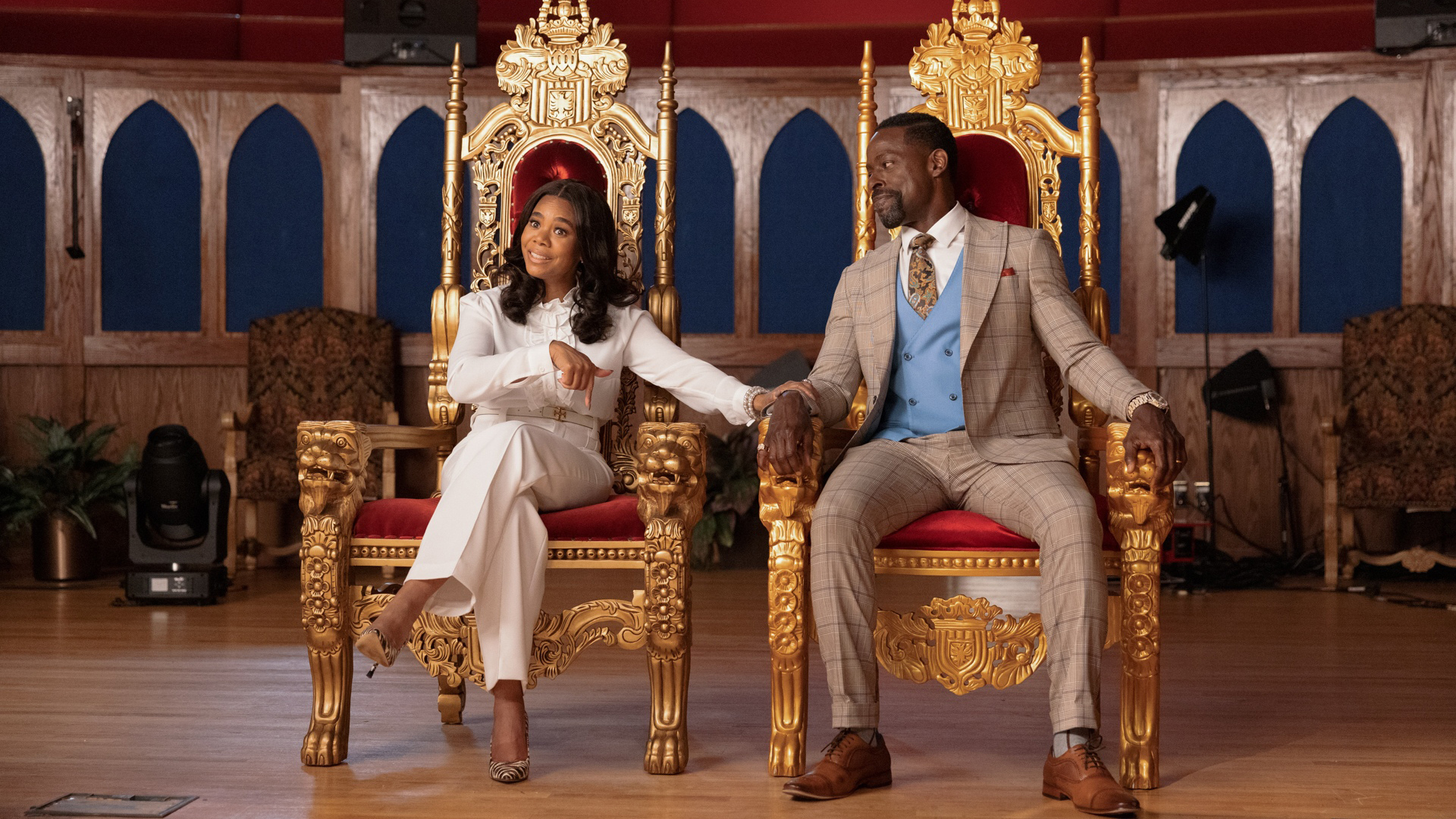
- Festivals
“Honk For Jesus, Save Your Soul”: Sisters Are Doing It for Themselves
In Igbo, the Nigerian language, the word “Ejime” means “twin.” How apropos for identical twins Adamma and Adanne Ebo to name their production company Ejime while pursuing content focused on multiple perspectives and intersectional experiences. Their first feature film, premiering at Sundance, is called Honk for Jesus, Save Your Soul. Adamma Edo directed and Adanne Ebo produced it.
The story centers on the proud first lady of a Southern Baptist megachurch, Trinitie Childs (Regina Hall), who carries a huge burden on her shoulders. Her church, Wander To Greater Paths once served a congregation in the tens of thousands. After a scandal involving her husband, Pastor Lee-Curtis Childs (Golden Globe Winner Sterling K. Brown), forced the church to close temporarily, Trinitie is struggling to manage the aftermath. Now Trinitie and Lee-Curtis must rebuild their congregation and reconcile their faith by all means necessary to make the biggest comeback that commodified religion has ever seen.
Initially produced in 2018 as a short to be showcased on Issa Rae’s Short Film Sunday Series on YouTube, the concept actually began in Adamma’s screenwriting class at UCLA. Inspired by Golden Globe-winning Damien Chazelle’s film Whiplash, which he initially created as a short and proof-of-concept, she wrote a draft as a feature film assignment. Seeing the potential, Adamma decided to transform the story in a short for her thesis. This served as her own proof-of-concept that would lead to the identical twins directing their first feature film.
Adanne, the first-born twin by 17 minutes, is a graduate of Spelman College and Northwestern University School of Law. Adamma is the second-born twin and a graduate of Spelman College and UCLA’s graduate Directing/Production program. In their native Atlanta, the church was a huge part of their upbringing, both spiritually and culturally, but soon the two felt disillusioned when the church dedicated sermons to the evils of Harry Potter and Halloween, two products of pop culture with which they were obsessed.
Their development of Honk for Jesus caught the attention of Golden Globe winner Daniel Kaluuya and his 59% Productions. One of their first meetings was about casting. When queried who they envisioned to play Trinitie, the twins replied in unison “like a Regina Hall type.”
“Regina has been huge in Black Hollywood forever,” Adanne revealed during a Sundance interview. “We just wanted someone like that because we never thought we could get her.” But as luck would have it, one of the producers at 59% knew her agent, sent in the script. In January of 2020, in an initial meeting, the actress told them “Whatever you all want to make it, I am in.”
The search for pastor Lee-Curtis became a bit more complicated. The role required an actor with immense presence and comedic timing. While the name Sterling K. Brown circulated more than a few times to them, they were unsure the Golden Globe-winning actor had the necessary comic abilities.
Scrolling through his credits on IMDb, they noticed he won an Emmy Award for a guest spot on the sitcom Brooklyn Nine-Nine and checked out his performance.
“He played a straight man but was so funny,” notes Adamma. “That isn’t easy to do.” After their first meeting, the Ebo sisters knew they had found their man and set out to make that acting combination work.
“It almost didn’t work,” confesses Adanne. “But God, that was divine intervention right there. God came through because This is Us had an opening in their schedule.”
Sometimes the concept of a movie plays right into the zeitgeist. A few blatant misdeeds by various religious figures led the Ebo sisters to Honk for Jesus. They seized the opportunity to critique what was going on and to encourage the audience, as well as themselves, to question what was happening in the church.
“When we were growing up, that was very much discouraged,” sums up Adamma. “But, even so, this film is our love letter to it.”
Adanne concurs. “The inspiration is twofold because it is such a prominent part of our culture as American Nigerians but, also, of Black culture as well. It really does something to your soul. The inspiration came from an area of critique but also of love.

